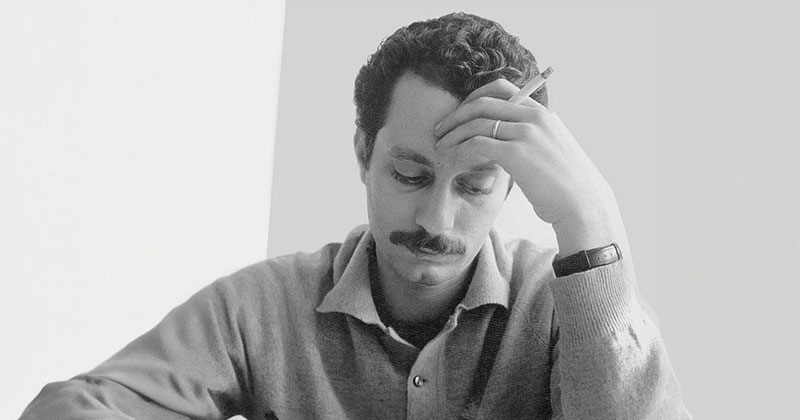
Watch Sally Rooney read Ghassan Kanafani's "Letter from Gaza" in solidarity with Palestine.
Over the past three weeks, some of the biggest names in Irish literature—including Sally Rooney, Anna Burns, Kevin Barry, Paul Lynch, Doireann Ní Ghríofa, Nicole Flattery, and Mark O’Connell—came together with a number of prominent Palestinian writers (including Ahmed Masoud, Fady Joudah, and Bana Abu Zuluf), in six events across five different cities (Belfast, Cork Dublin, Galway, and London), to raise over €30,000 for Medical Aid for Palestinians.

Speaking to the Irish Times last month, the Belfast writer Michael Magee, one of the organizers of the Irish Writers for Palestine series, said of the project:
As well as raising money, our hope is that this series will have a cultural impact, both in Ireland and abroad, and will galvanise people in some way. Writers, especially in Ireland, occupy a certain cultural position, and we hope to use that position to do what we can to show our solidarity. And if we can platform Palestinian literature in the process, and include Palestinian writers in the events, alongside Irish writers, we have the potential to make a very powerful statement, especially in this current political climate, when voices sympathetic to the Palestinian struggle, both within Israel, and across Europe and the US, are facing more marginalization and violent suppression than ever.
Here is Sally Rooney reading an excerpt from the assassinated writer and politician Ghassan Kanafani’s 1956 short story “Letter from Gaza” at the Irish Writers for Palestine Dublin event on December 5.
Rooney (whose conversation with Isabella Hammad about the Gaza crisis, published in the Observer yesterday, is well worth reading) made headlines back in 2021 when she decided not to grant Israeli publisher Modan the right to translate her novel Beautiful World, Where Are You?, because to do so would have violated the cultural boycott of Israel.
In an open letter to Rooney, published in November of that year, Associate Professor of Postcolonial and Postmodern Literature at Gaza’s al-Aqsa University Haidar Eid wrote the following:
The moment we learned about your decision in Gaza, we celebrated, with an obvious relief, the fact that someone of your calibre is hearing our voices. Such relief has become a rare commodity since Israel imposed a medieval blockade on our tiny strip over a decade ago.
Every single day we are faced with new challenges and escalating difficulties in this open-air prison once known for its beauty, historical sites, cultural hideaways and vibrant commerce.
As I am penning this letter to you, Gaza is once again in darkness. Hours-long, daily power cuts are now an ordinary part of our lives in this besieged city.
Since 2009, Israel has carried out four massacres in Gaza. The latest one, in May, resulted in the deaths of 260 people, including 67 children.
We are anxious, frustrated and angry.
But your act of solidarity gave us some true hope. It made us realise that there are still people in this world who acknowledge our suffering—who refuse to turn their backs on our call for justice.
…
You, by listening to our call to boycott all attempts to whitewash Israel’s crimes against our people, made it clear that you have chosen to be on the side of the oppressed. And we, the Palestinians, are eternally grateful.
Irish Writers for Palestine have made videos of the entire Dublin and Belfast events, as well as of a number of wonderful individual readings, available to watch for free on their Youtube channel.
If you can, please consider donating to Medical Aid for Palestinians.
Dan Sheehan
Dan Sheehan is the author of the novel Restless Souls (Ig Publishing) and Editor-in-Chief of Book Marks.



















